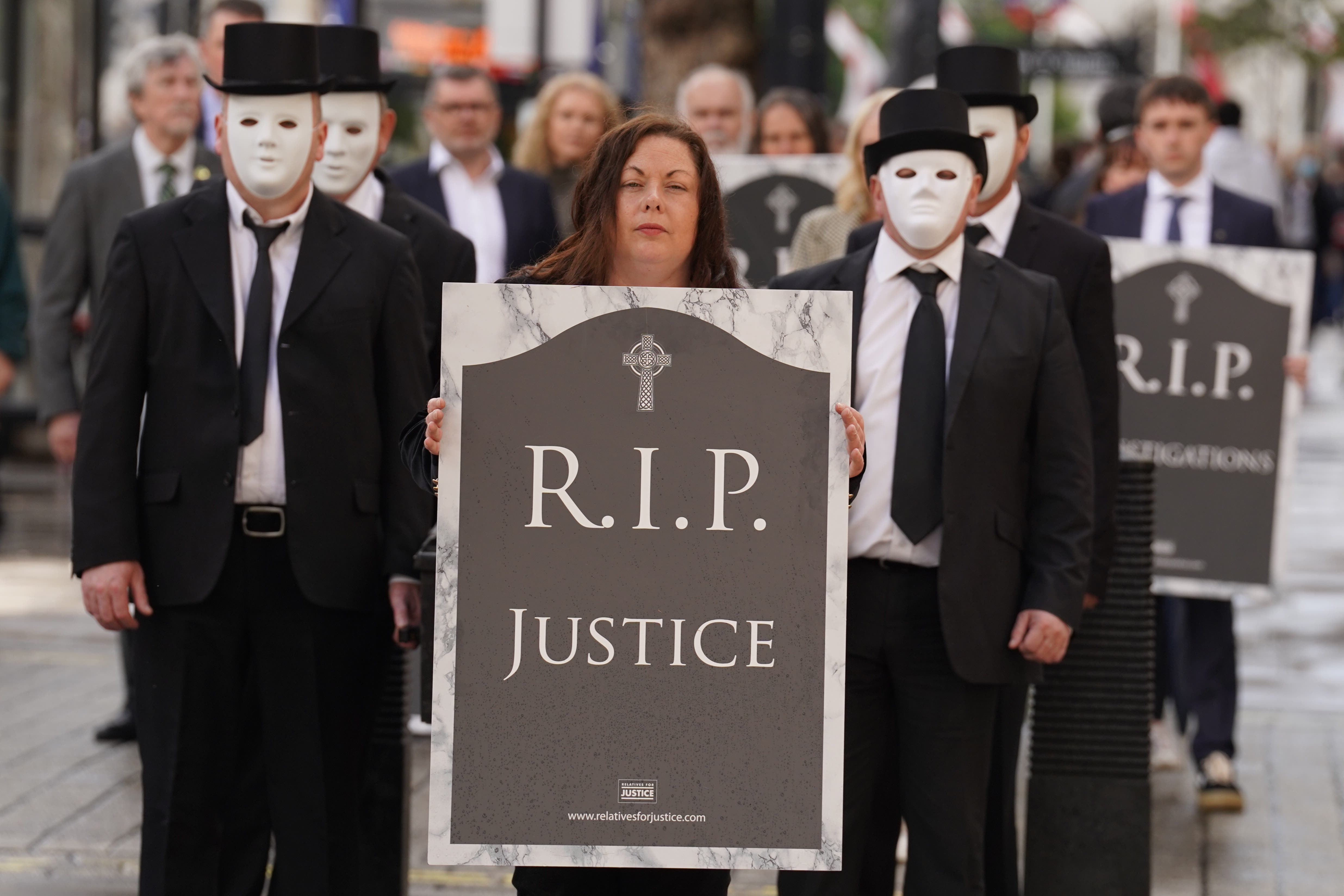Council of Europe calls for repeal of Legacy Act immunity provisions
The body’s Committee of Ministers expressed concerns that the act breached human rights obligations.

The Council of Europe has urged the UK Government to repeal immunity provisions in its new laws aimed at dealing with the legacy of the Northern Ireland Troubles.
The council’s Committee of Ministers said the immunity scheme “risks breaching obligations under Article 2 of the European Convention to prosecute and punish serious grave breaches of human rights”.
The Northern Ireland Troubles (Legacy and Reconciliation) Act received royal assent on Monday despite widespread opposition from political parties, victims’ organisations in Northern Ireland and the Irish government.
The most controversial aspects of the new act include a limited form of immunity from prosecution for Troubles-related offences to those who co-operate with the new Independent Commission for Reconciliation and Information Recovery (ICRIR).
It will also halt future civil cases and inquests.
The ICRIR, which will assume responsibility for reviewing hundreds of unresolved Troubles deaths, will be headed by former Lord Chief Justice Sir Declan Morgan with former senior police officer Peter Sheridan as its commissioner for investigations.
The Council of Europe is an international body that oversees and monitors compliance with the ECHR. The UK is one of its 46 members and a signatory to the convention.
In a newly published decision, the council said issues relating to independence, disclosure and the initiation of reviews by the ICRIR “remain uncertain”.
It also urged authorities to consider taking “additional practical measures” to ensure that as many legacy inquests as possible could conclude before a cut-off date of May 1 2024.
The council also reiterated its “serious concern about the proposed conditional immunity scheme which risks breaching obligations under Article 2 of the European Convention to prosecute and punish serious grave breaches of human rights”.
It “strongly urged” the UK Government to consider repealing the immunity provisions.
The council is to write to the UK Government outlining its concerns.
This week, Northern Ireland Secretary Chris Heaton-Harris described the granting of royal assent for the act as a “significant milestone”.
(The legislation) presents us all with a real opportunity to deliver greater information, accountability and acknowledgement to victims and families, moving away from established mechanisms that have left far too many empty-handed
He said: “The legislation contains finely balanced political and moral choices.
“It presents us all with a real opportunity to deliver greater information, accountability and acknowledgement to victims and families, moving away from established mechanisms that have left far too many empty-handed.”
But a number of victims’ families have already launched legal challenges to the new laws. At a High Court hearing on Wednesday, it was stated that 16 applications for judicial review had been submitted.
Meanwhile, some victims’ organisations have said they intend to protest at a conference focusing on the Legacy Act next week.
Sir Declan is the keynote speaker at the event for the legal profession organised by the Law Society.